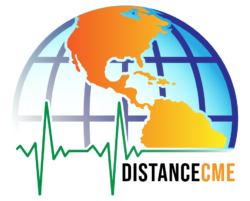July 2024
Career Development and Advancement for EMTs
Emergency Medical Technicians (EMTs) and Emergency Room Technicians (ERTs) serve[...]
NREMT changed their test?!
For the last several months, everyone has been hearing about the dramatic changes coming to the National Registry of EMT (NREMT) testing process for AEMTs and Paramedics. Driven by input from stakeholders and the National Commission for Certifying Agencies (NCCA) which is the accrediting agency for NREMT, significant changes have been made to the testing process effective July 1, 2024.
June 2024
The Circulatory System: The Plumbing of Our Body
In the two previous installments, we talked about the role[...]
OSHA Requirements for Working in Emergency Flood Zones and Severe Weather Conditions
It is crucial to conduct a thorough hazard assessment to identify potential risks and provide comprehensive training on specific hazards and protective measures. Your department should have already identified all potential flood hazards in your response area. If this has not been done, it must be completed, and a detailed Emergency Action Pre-plan should be made a top priority.
Blood Volume: Products
When we think about our blood, most health care providers agree that it is necessary to perfuse our body and losing too much will not be good for our patient. But what is blood and why do we need it? This question has many correct answers. Human blood is not only responsible for providing nourishment and oxygenation to the cells of the body’s organs but it also plays a role in fighting off infection, promoting clotting and regulating body temperature. Human blood is made of four basic components: red blood cells, white blood cells, platelets and plasma. Each of these components play a vital role in maintaining homeostasis within our body. Overall blood volume in relation to body mass is also an important part of discussing the importance of human blood on overall functioning of the body.
The Workhorse of the Human Body: How the Human Heart is a Behind the Scenes Hero
Most of us give little thought to how consistent and reliable the human heart is. Without an effectively pumping heart, the human body ceases to function and can die physiologically within minutes. Some organs can tolerate a lack of blood flow better than others. Vital organs such as the brain, the kidneys, the heart, and the liver are the most rapidly affected by a lack or decrease in blood flow while other organs of the body can tolerate a lack perfusion for a longer period of time. The heart is considered “the pump’ of the circulatory system and without a consistently functioning pump, the human body cannot perform adequately to sustain life.
